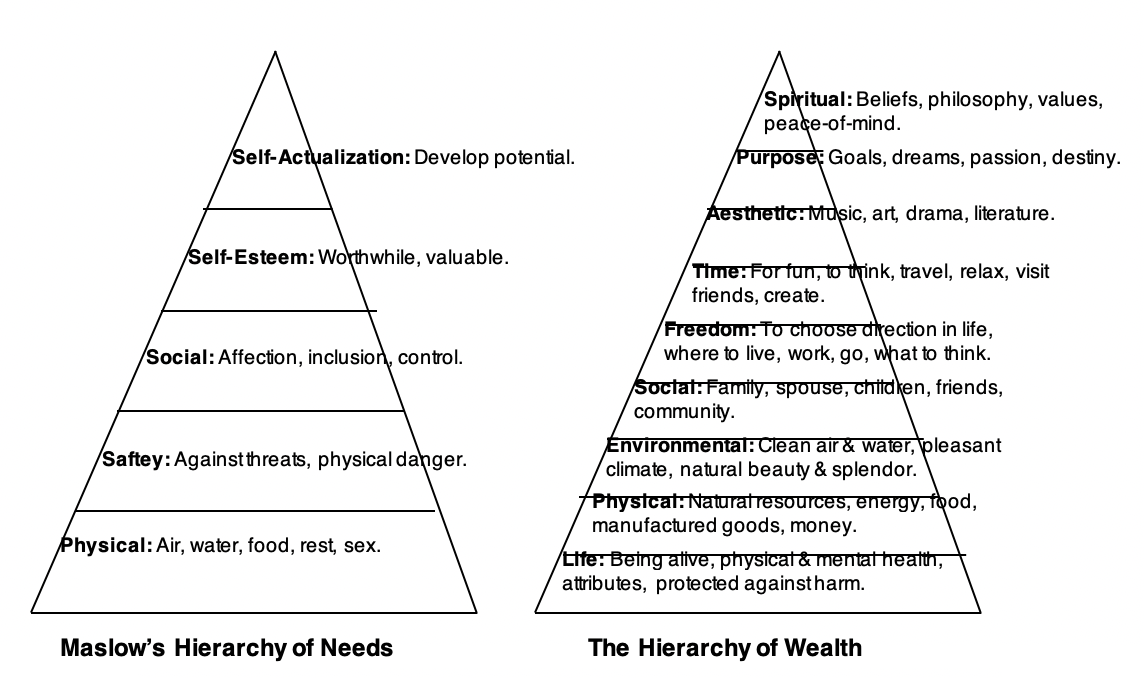11. Wealth Redefined

If you are full, bread is bread. If you are hungry, bread is wealth. If you are walking, a car may be considered wealth. There is a big difference between walking and an old beat-up jalopy, especially on a cold, dreary winter night. A much smaller difference between the jalopy and a new Rolls Royce! Wealth it seems, like beauty, is in the eye of the beholder.
What happens if an economic depression hits and you lose all of your “wealth”? Do you jump out of a window like many did that fateful “Black Thursday” October 24, 1929, when the U.S. stock market crashed leading into the Great Depression. How permanent is such wealth?
During the Depression era, most people had families they could rely on to get by. Communities were stronger than today. People more freely shared and cared for each other. When you hit hard times, such a social network is wealth. The Mormons know this. They have an incredible “welfare” system infrastructure in place so that if a church member needs help, they can get it by offering to volunteer labor (if able) in return. They are also taught to store a year’s worth of food to help meet any crisis, natural or manmade.
Perhaps we should examine what is this thing known as wealth? Is it one thing or many? An analogy can be made between needs, as eloquently expressed by Maslow[1] and wealth. The diagrams above illustrate the concept.
Charles Eisenstein studied money and it’s effects on how societies behave. The conclusions he came to can have a profound effect on now we view wealth and the possbilities of a new way of life that is better suited to our natures.
Sacred Economics traces the history of money from ancient gift economies to modern capitalism, revealing how the money system has contributed to alienation, competition, and scarcity, destroyed community, and necessitated endless growth. Today, these trends have reached their extreme—but in the wake of their collapse, we may find great opportunity to transition to a more connected, ecological, and sustainable way of being.[2]
Wealth is not a zero-sum game. For me to gain doesn’t mean you have to lose. Your life can add to mine, my art adds to your music, the more free you become the easier it is for me to enjoy my freedom. Physical wealth is infinite (as described in the previous chapter) and so are all forms of wealth.
[1] “A Theory of Human Motivation” published in the journal Psychological Review, 50: 370-396. 1943.
[2] Sacred Economics, Charles Eisenstein 2011
